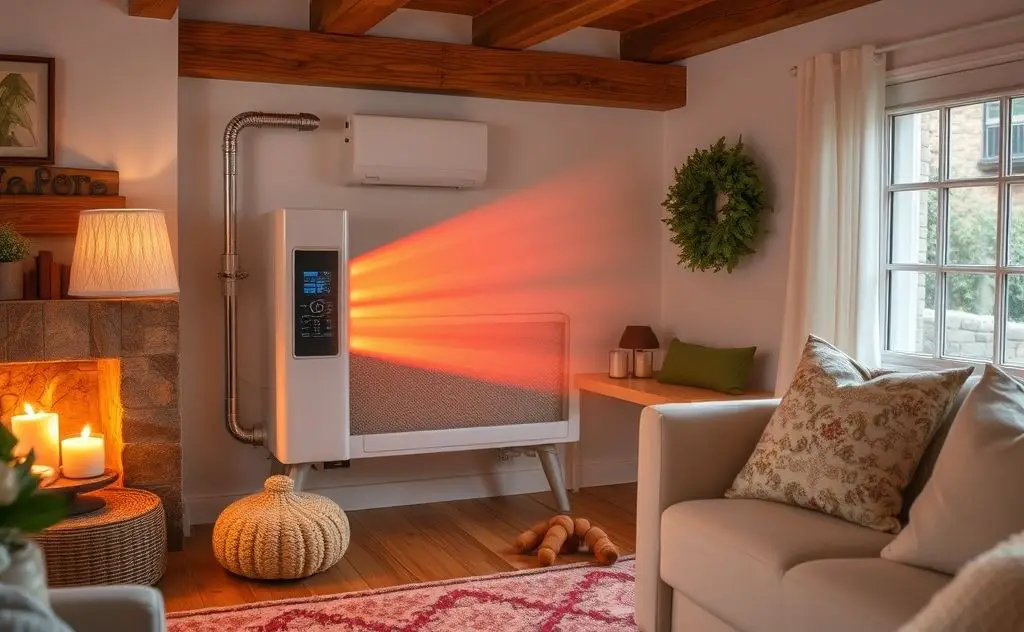Choosing the right convection heating system depends on your space size, insulation, energy efficiency, and desired heating speed for optimal comfort and cost-effectiveness.
Convection heaters offer efficient, even heating for homes and businesses. Unlike radiant heaters that warm objects directly, convection systems circulate heated air to create consistent comfort. This guide explores key factors to consider when selecting a convection heating system.

Understanding Convection Heating Technology
Convection heaters work through natural air circulation. Cold air enters the unit, gets heated by internal elements, then rises to warm the space. This process repeats continuously for steady temperature maintenance.
Core Components
- Heating element (electric coil or gas burner)
- Thermostat for temperature control
- Safety features (tip-over switch, overheat protection)
- Optional fan for improved air circulation

Key Selection Factors
Room Size and Heating Capacity
Match heater output to your space. As a general rule:
| Room Size | Recommended Wattage |
|---|---|
| 100 sq ft | 1000W |
| 200 sq ft | 1500-2000W |
| 300+ sq ft | 2500W+ or multiple units |
For larger spaces like warehouses, consider industrial-grade units like the 115,000 BTU Master heater.
Energy Efficiency
Look for these efficiency features:
- Programmable thermostats
- Energy Star certification
- Adjustable power settings
- Timer functions
Safety Considerations
Essential safety features include:
- Automatic shut-off if tipped over
- Overheat protection
- Cool-touch exteriors (especially important for homes with children/pets)
- Certification from recognized testing labs (UL, ETL)
Types of Convection Heaters
Electric Convection Heaters
These plug-in units are popular for residential use. Models like the Eco Heater wall-mounted ceramic offer space-saving designs.
Gas Convection Heaters
Ideal for areas without reliable electricity. The U.S. Department of Energy provides guidelines for safe operation.
Hydronic (Water) Systems
These use heated water through baseboards or radiators for whole-home heating.
Special Applications
For Animal Housing
As noted by Roxell, convection heating works well in poultry and pig houses where consistent ambient warmth is needed.
Industrial Settings
Warehouses and workshops may require heavy-duty units with high BTU outputs and durable construction.
Installation and Maintenance
Placement Tips
- Keep at least 3 feet from flammable materials
- Place on level, stable surfaces
- Avoid high-traffic areas
- Ensure proper ventilation for gas models
Maintenance Checklist
- Clean air intake vents regularly
- Check electrical cords for damage
- Test safety features periodically
- For gas units, inspect connections and vents annually
Cost Considerations
Factor in both purchase price and operating costs. Electric models typically have lower upfront costs but may be more expensive to run than gas in some areas. Energy-efficient models can save money long-term.
Sample Cost Comparison
| Type | Initial Cost | Operating Cost |
|---|---|---|
| Basic Electric | $50-$150 | $0.15-$0.30/hr |
| Premium Electric | $200-$500 | $0.10-$0.20/hr |
| Gas Convection | $300-$800 | $0.05-$0.15/hr |
Smart Features to Consider
Modern convection heaters offer advanced controls:
- Wi-Fi connectivity for remote operation
- Voice control compatibility
- Energy usage monitoring
- Zone heating capabilities
For those needing precise temperature control, explore thermostat-controlled water heaters as an alternative solution.
